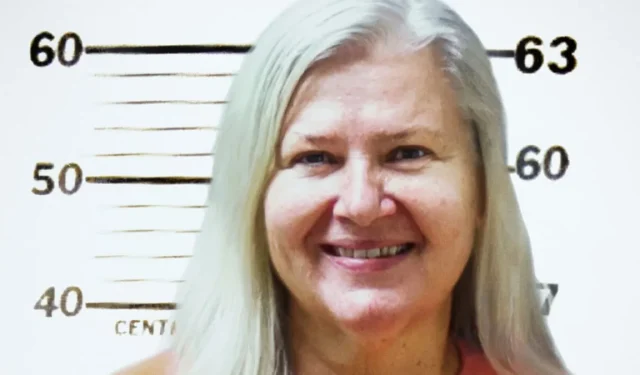
The HBO true crime documentary I’m Not a Monster: The Lois Riess Murders comes off as a sensationalized misstep. It undermines the efforts of abuse survivors, mental health advocates, and the feminist movement. Rather than providing substantial insight, the documentary glosses over critical issues and offers Lois Riess a platform that skews the truth.
Trigger warning: mentions of murder, abuse, and addiction
Lois Riess became notorious for murdering her husband, David, in Minnesota before undertaking a cross-country escape. During her flight, she befriended and subsequently killed Pamela Hutchinson in Florida to assume her identity. This resulted in a nationwide manhunt that concluded with her arrest in Texas. Riess pleaded guilty, bypassing a trial that left many aspects of the case ambiguous—until now.
One problematic element of the documentary is its focus on Riess herself, presenting a disingenuous narrative. She purports to have been in a “blackout state” during her heinous acts, asserting that emotional turmoil and a gambling addiction rendered her unable to remember or control her behavior. It raises eyebrows that she can’t recall any details surrounding the murders yet can accurately recount the exact amount of her inheritance down to the last cent.
Riess alleges that her husband’s abuse pushed her to commit these crimes. Counter-evidence suggests that many of her actions stemmed from her own issues, including a severe gambling addiction that spiraled drastically out of control. She even faced legal consequences for embezzling thousands from her sister, for whom she was supposed to be caring. In response to an inquiry about this, Riess appeared oblivious, requiring the interviewer to explicitly state that stealing from her sister was wrong.
The documentary fails to address the danger of assigning whimsical nicknames to criminals or simplifying them into shallow stereotypes. It is disheartening to witness such narratives being propagated, as they allow society to miss crucial warning signals when perpetrators do not fit the normative image of a “dangerous individual.” Permit Riess to feign ignorance only enhances her public persona while diminishing the profound impact of her atrocities against her victims.
Labeling Lois as “killer grandma” trivializes the ghastliness of her actions. Such tactics aim to sensationalize the story, but the narrative wouldn’t require embellishments if the documentary fulfilled its intended purpose. Furthermore, airing a recruitment advertisement for the Lee County Sheriff’s Office was totally inappropriate. When this aired at the beginning of the second episode, I questioned whether I had selected the correct show. Those three minutes could have been better spent on a mental health campaign, a domestic abuse hotline, or even an anti-gambling initiative!
By allowing Riess to narrate her account without offering sufficient contradiction to her misleading portrayal, the documentary ultimately fails both abuse survivors and mental health advocates. Many individuals struggling with abuse or mental health issues manage their challenges day by day. However, here we have someone misusing those very struggles as justification for her murderous actions. This misrepresentation is a significant blow to the feminist movement’s efforts for acknowledgment and support.
At least the documentary makes some progress by juxtaposing Riess’s assertions with video footage and eyewitness accounts, revealing a different narrative. Rather than exhibiting signs of being broken or tormented, Riess engaged in gambling and drinking, behaving in a charming and fun manner after both murders. Witnesses described her as flirtatious and lively. Furthermore, she was found with a “kill kit” upon her arrest, indicating she was prepared to kill again.
Regardless of her husband’s situation, Lois Riess committed a calculated murder of Pamela Hutchinson, which the documentary glaringly underplays. The focus on identity theft as a motive receives insufficient attention, diminishing the seriousness of Hutchinson’s murder. Instead, the documentary allotted more time to the Sheriff’s office discussing why they were personally affected by the crime. While I appreciate law enforcement’s seriousness in addressing crime, I find it difficult to understand how this holds more weight than the voices of Pamela Hutchinson’s family and friends.
Ultimately, I’m Not a Monster: The Lois Riess Murders fails to strike the right chord. It permits Riess to steer the narrative while trivializing the genuine harm she inflicted. Instead of focusing on pressing issues like mental health in relation to crime, domestic violence, and gender stereotypes, it concludes as a superficial story that is more harmful to society than beneficial. The victims, viewers, and affected communities deserve a far better portrayal.




Leave a Reply